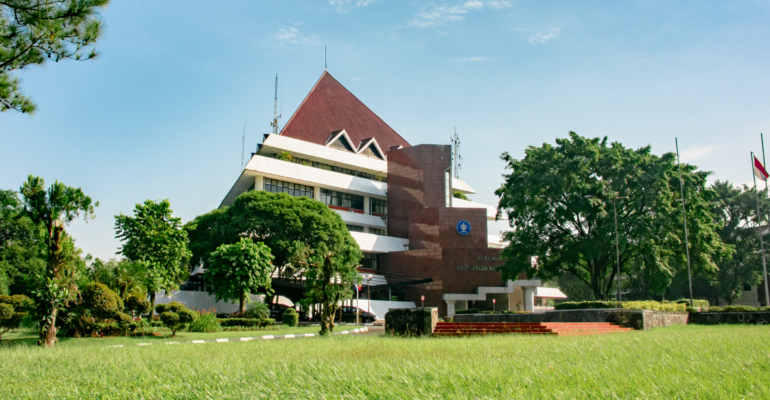The Most Recent! IPB University Opens Bioinformatics Study Programme, a Combination of Computer Science and Molecular Biology

Another new programme (study) opened by IPB University this year. The programme in question is the Undergraduate Study Programme (S1) Bioinformatics under the Faculty of Mathematics and Natural Sciences (FMIPA).
Bioinformatics itself is a combination of computer science, mathematics, statistics, and biology, especially molecular biology. Bioinformatics has an important role in solving various problems related to life science, health, and agriculture.
Chairman of the Team for the Establishment of Bioinformatics Study Program at IPB University, Dr Wisnu Ananta Kusuma, explained that the establishment of this study program aims to apply and develop the science of bioinformatics and its integration with other fields of science. This is also in line with IPB University’s agromaritime vision, which is to optimise the richness of Indonesia’s biodiversity, both on land and in the sea, by utilising interdisciplinary sciences, including bioinformatics.
“IPB University’s Bioinformatics Study Programme offers a unique approach in scientific development, namely a balance between basic computational science content taken from computer science and molecular biology taken from biology/biochemistry as core competencies,” he said.
Thus, Dr Vishnu continued, this study programme not only applies molecular biology, omics technology, and systems biology, but also computer science, especially related to software development, algorithms, and large-scale data processing.
Another uniqueness of this study programme is the focus on biodiversity development related to agromaritime to support the development of biomedicine, precision medicine, and precision agriculture. Graduates are expected to be able to master integrative approaches and thinking in omics data management to produce superior and competitive added value from Indonesian biodiversity.
Graduates of IPB University’s Bioinformatics Study Programme have very promising career prospects. They can work as young bioinformatics engineers, young researchers, biostatistics practitioners, microbiology practitioners, molecular biology practitioners, bioinformatics practitioners, biomedical practitioners, genomics-based plant breeding practitioners, biotechnology practitioners, vaccine engineering technicians, programmers, and large-scale data analysts.
In this way, IPB University’s Bioinformatics Study Programme promises extensive learning and career development opportunities for prospective students who are interested in combining computer science and biology to create innovative solutions in agromaritime and other fields. (Shintia/Rz) (IAAS/RUM)



